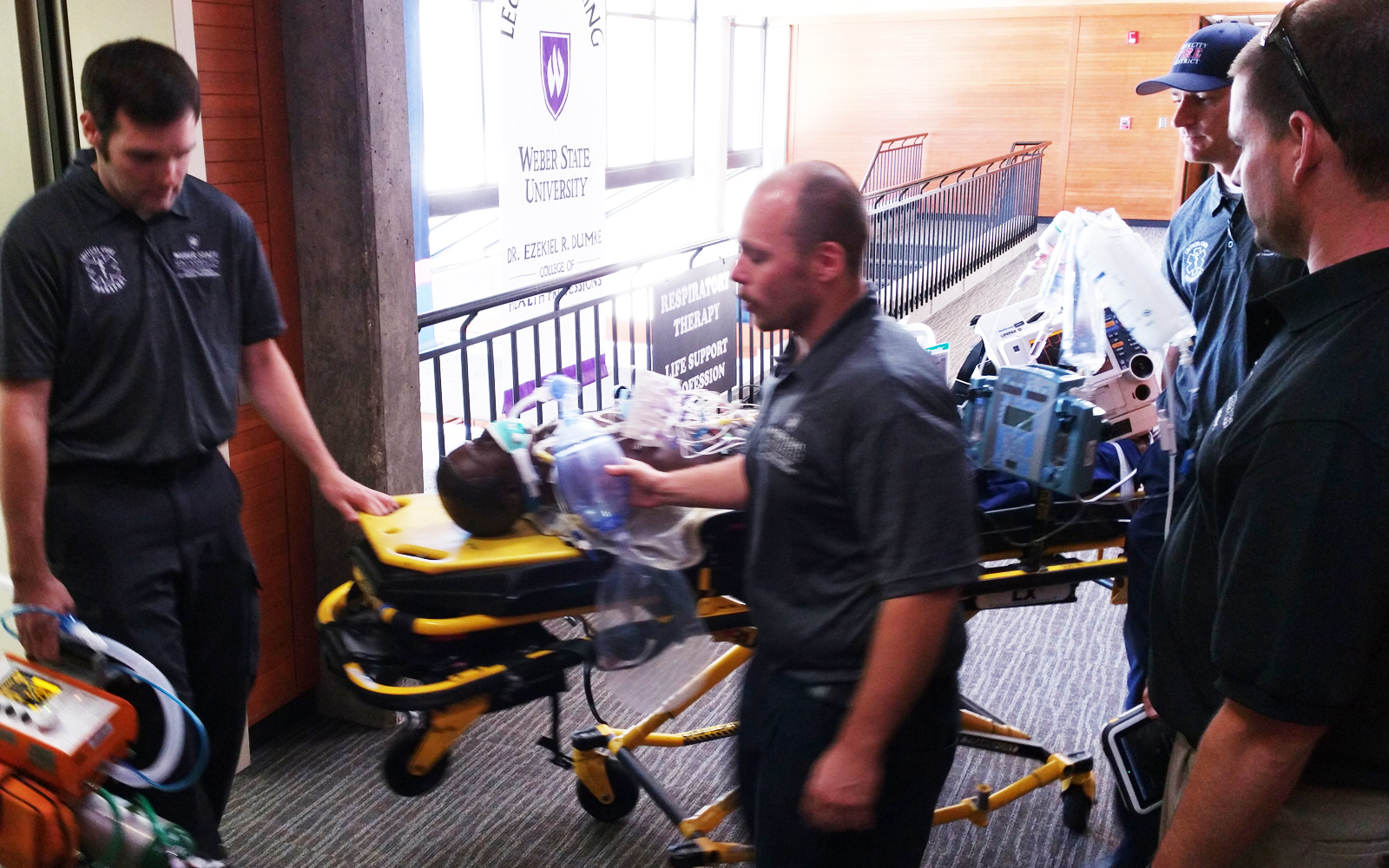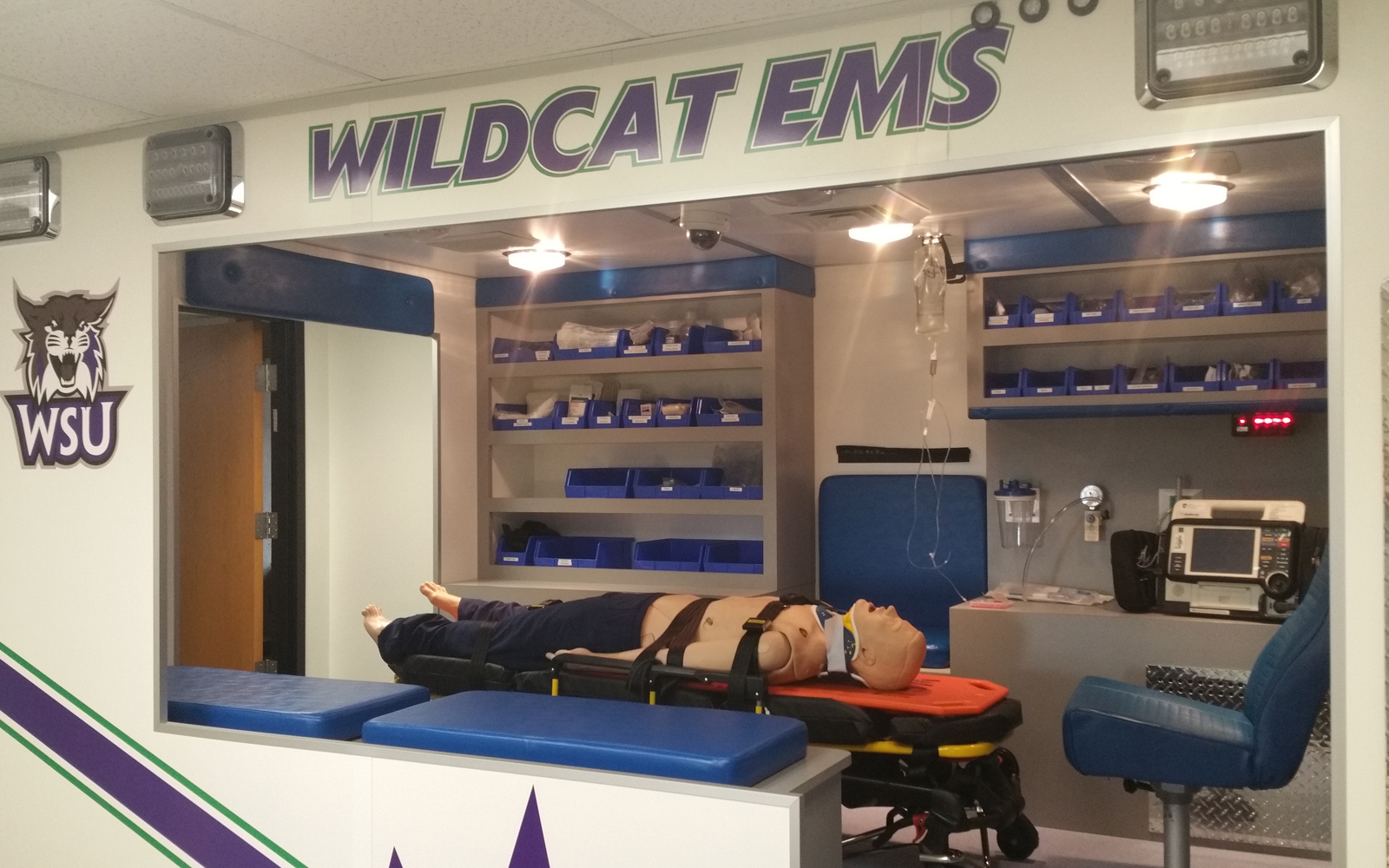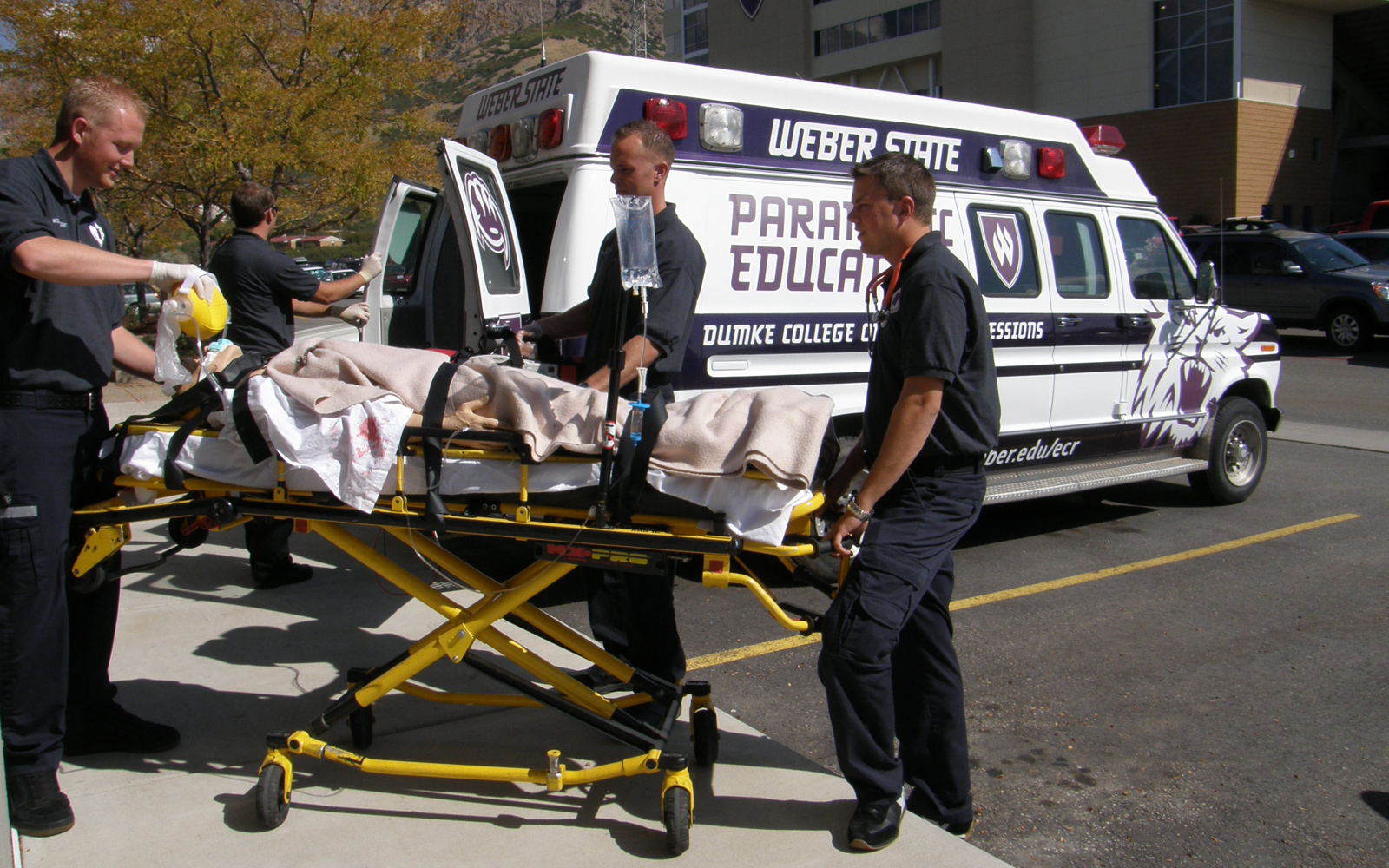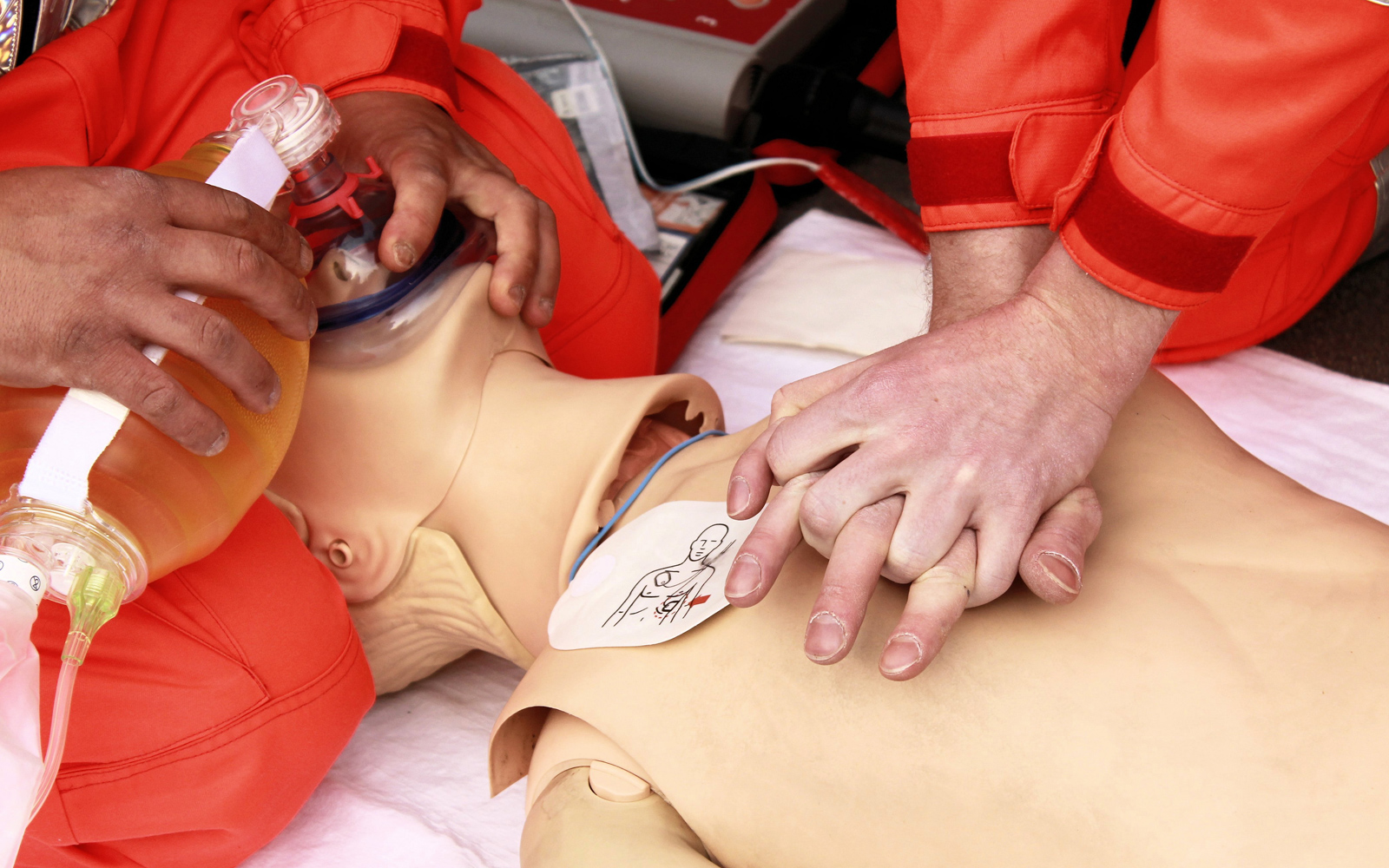The EMT-Basic course at WSU is a one-semester course offered fall, spring and summer semesters. During the Fall and Spring semesters, we have both a day and evening option. Our Summer EMT-Basic course is a condensed seven-week option. Together, the EMT-Basic courses are 6 credit hours. It is approximately 150 hours consisting of lectures, lab work, and a field internship with a local EMS agency. Currently, there are no prerequisites to enter the EMT-Basic course.
Degrees and Programs
The Department of Emergency Healthcare offers courses in EMT-Basic, Paramedic, and Critical Care Transport. Additionally, the EH department offers an Associate of Applied Science in Paramedic Studies and a Bachelor of Science in Emergency Healthcare Sciences, both degrees can be completed almost entirely online. Through our Department of Health Administration, EMS clinicians also have the option of pursuing a Master’s in Health Administration.
Finally, as the designated training center for the American Heart Association, the EH Department offers multiple continuing education opportunities such as BLS, ACLS, and PALS. Continuing education units can also be acquired through our critical care transport course or through the auditing of any of our many emergency medicine offerings throughout the year.

Paramedic Program
The paramedic program at Weber State University was the first accredited program in the state of Utah and one of the first in the entire nation. Interested candidates for the paramedic program can apply to one of two cohorts that are offered each academic year. Each cohort also has a distance learning option. Learn more about the prerequisites, distance options, and the different cohorts by clicking the button below.
Associate of Applied Science in Paramedic Studies
The Associate of Applied Science in Paramedic Studies degree at WSU is designed for paramedics that wish to make themselves more marketable in the workforce and improve their chances of working in field supervision or education. Learn more about the requirements and the graduation outline for the AAS degree in Paramedic studies by clicking the button below.

Bachelor of Science
The Bachelor's Degree in Emergency Healthcare Sciences builds on your previous education in EMS by adding upper division emergency medicine courses, healthcare courses, and general education courses. A strong core of Health Administration Services (HAS) and Health Information Management (HIM) courses will be utilized to provide a solid healthcare background.
Critical Care Transport
Meeting the needs and dynamic schedules of today’s busy clinical provider, this 8-week hybrid course is a comprehensive advanced level class designed to improve patient assessment and management of critically ill patients. This course will prepare experienced paramedics and registered nurses to become part of a highly functioning critical care transport team, often transporting high risk patients.
CPR Training
American Heart Association Authorized Training Center
The American Heart Association’s Course builds on the foundation of lifesaving BLS for Healthcare Providers skills, emphasizing the importance of continuous, high-quality CPR. There are a variety of courses offered, including BLS, ACLS, PALS, HeartSaver, etc.



